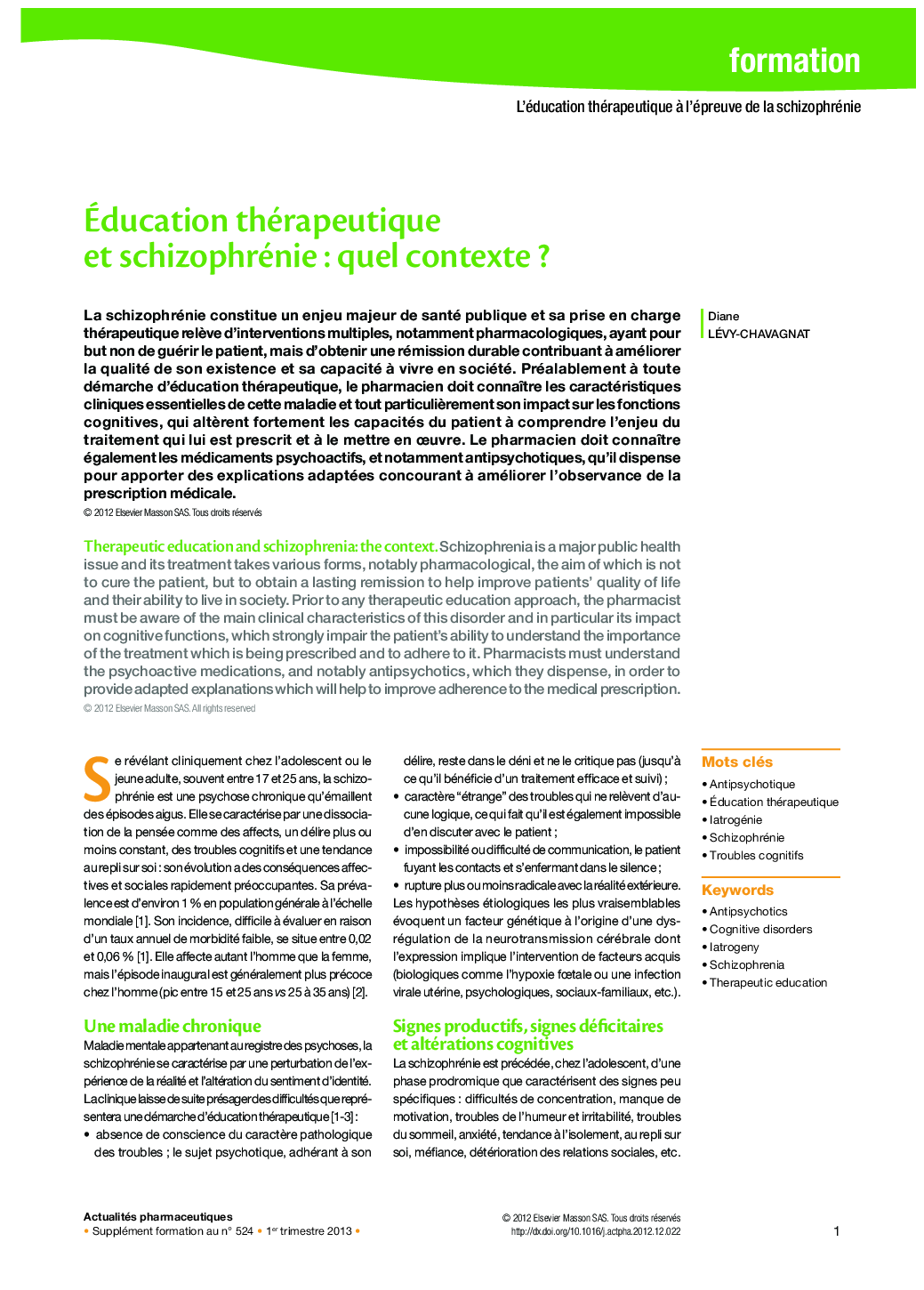| Article ID | Journal | Published Year | Pages | File Type |
|---|---|---|---|---|
| 2475607 | Actualités Pharmaceutiques | 2013 | 7 Pages |
La schizophrénie constitue un enjeu majeur de santé publique et sa prise en charge thérapeutique relève d’interventions multiples, notamment pharmacologiques, ayant pour but non de guérir le patient, mais d’obtenir une rémission durable contribuant à améliorer la qualité de son existence et sa capacité à vivre en société. Préalablement à toute démarche d’éducation thérapeutique, le pharmacien doit connaître les caractéristiques cliniques essentielles de cette maladie et tout particulièrement son impact sur les fonctions cognitives, qui altèrent fortement les capacités du patient à comprendre l’enjeu du traitement qui lui est prescrit et à le mettre en œuvre. Le pharmacien doit connaître également les médicaments psychoactifs, et notamment antipsychotiques, qu’il dispense pour apporter des explications adaptées concourant à améliorer l’observance de la prescription médicale.
Schizophrenia is a major public health issue and its treatment takes various forms, notably pharmacological, the aim of which is not to cure the patient, but to obtain a lasting remission to help improve patients’ quality of life and their ability to live in society. Prior to any therapeutic education approach, the pharmacist must be aware of the main clinical characteristics of this disorder and in particular its impact on cognitive functions, which strongly impair the patient's ability to understand the importance of the treatment which is being prescribed and to adhere to it. Pharmacists must understand the psychoactive medications, and notably antipsychotics, which they dispense, in order to provide adapted explanations which will help to improve adherence to the medical prescription.
